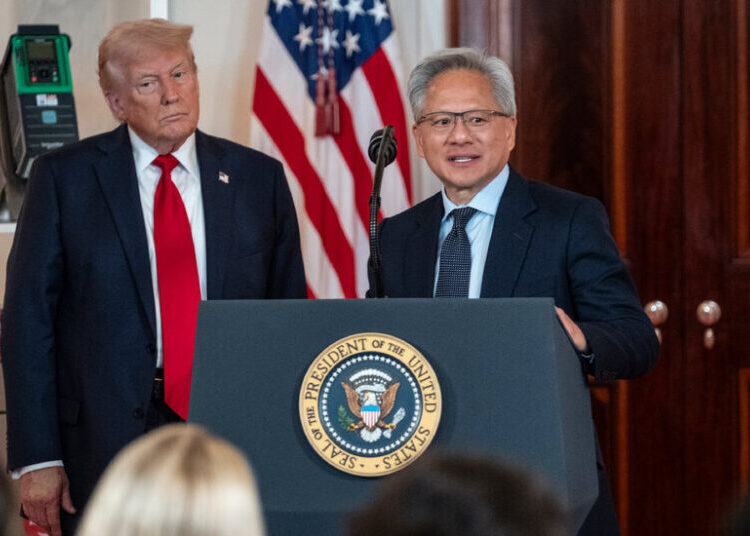It began, the professors said, last November, when the provost held up a yellow legal pad at a college meeting.
“If we were to restructure, how should we do it?” the provost, Junius Gonzales, asked the assorted faculty members of the College of the Humanities and Social Sciences at Montclair State University, New Jersey’s second-largest public university.
A year later, the answer is becoming clearer, in a way that many of the professors fear will mean the end of humanities at the school as they know it.
Last week, university administrators sent faculty members a restructuring plan for the college, which teaches about 5,000 students in subjects from English to psychology. The college’s 15 academic departments will be merged into thematic-based schools, with broad names meant to signal their relevance. Within those schools, the individual academic departments will probably be abolished — or at least, will no longer exist in the same way.
The departments of English, classics, philosophy, world languages and Spanish and Latino studies, for example, will be grouped into the tentatively titled School of Human Narratives and Creative Expressions. The psychology, linguistics, social work and religion departments will make up the School of Human Behavior and Well-Being. (There will be four schools in all; faculty will help determine the final names.)
With humanities studies on the decline across the country, Montclair State is not alone in proposing a reorganization that administrators hope will help attract more students. But eliminating all the academic departments in a liberal arts college that is not hemorrhaging enrollment would be a very unusual step.
Though professors’ inboxes have been flooded with concern about the intentions and impact of the restructuring, it remains unclear what it will mean. Is the move, as college administrators argue, designed to get professors to collaborate more across disciplinary lines,and share administrative burdens? Or is the end of academic departments, and elected department chairs, a way to weaken the rigor that makes areas of study distinctive, making the humanities easier to shrink and ultimately push out?
Adam Rzepka, an English professor who specializes in early modern literature, suspects the worst. The plan is “insane,” he said in an interview, and is a fundamental attack on the university’s core mission: expert-led education.
“Colleges and universities only have one thing to sell at the end of the day, and that is learning from experts,” he said. “Otherwise, it’s just more high school, but you have to go into debt for it.”
He doubts it will be more marketable to tell families their children would “vision new synergies of the future with the School of Human Expression” rather than saying they will study English.
“This is why people have no faith anymore in higher education,” he said.
Jeffrey A. Miller, a 2019 MacArthur “Genius Grant” recipient in Montclair State’s English department, pointed out that the plan lacks the normal justifications for a restructuring. The university’s finances are stable, and enrollment in the humanities college, the university’s largest undergraduate college, has been ticking up.
This is “a radical, reckless course of action,” Professor Miller said.
But Jonathan Koppell, the university’s president, maintains the opposite. The reorganization is intended to reinvigorate the study of humanities at Montclair State, he said in an interview, in part by pushing professors to think beyond their current departmental silos.
While enrollment in the humanities college has increased by 3 percent during the past five years, that was mostly driven by the popular psychology department, which has 2,300 students who are majoring in the discipline. Enrollment decreased in about half the other departments, including in English, which has 346 students pursuing that major, down from 423 in 2021, the college said. (English professors pointed out that freshman enrollment has been rising, in a hopeful sign.)
“I think that universities, at their worst, reject new stuff,” President Koppell, a political scientist, said. “And that’s part of how you lose relevance. You have to create an organization that’s sufficiently dynamic and future-oriented. And part of that is to break down the ruts that have shaped our ways of approaching inquiry.”
He said that the university had not finalized the internal structure of the merged schools. But their underlying academic programs and faculty, he said, will not be eliminated, so students would still be able to major in English and the other disciplines. The idea would be to get department chairs into the classroom more by reducing their administrative duties.
“A possible future is that we will no longer use the term ‘department,’ that we will call them areas or something like that,” he said. “Or it could be that we come up with a version where departments persist within schools, but they look different or they function different.”
An implementation committee that will include faculty will handle the details, beginning in January, he said.
A private university in Virginia provides an example of what Montclair State is considering. Marymount University, which has about 4,000 students, implemented such a plan in 2020, eliminating all departments and creating three interdisciplinary colleges, led by fewer administrators. The move slashed overhead by 50 percent, said Irma Becerra, the university president.
Since then, Marymount has reduced focus on the humanities and emphasized programs in career-oriented fields such as nursing and business administration. In 2023, it eliminated nine under-enrolled undergraduate majors, including in English, history, mathematics and philosophy. Dr. Becerra said that a small university such as Marymount should focus on what it does best and not try to offer majors in every field.
Arizona State University, with nearly 80,000 in-person students, is perhaps the best-known example of a university that created a range of dynamic interdisciplinary schools by merging departments. President Koppell spent more than a decade as an administrator there before coming to lead Montclair State.
But Arizona State invested in the humanities, instead of making cuts, a move that was key to its transformation, said Manushag Powell, a literary historian who chairs what is still called the English department at the university but which is now a multidisciplinary program that includes subjects such as film and media studies.
“Mergers done well, with care and intentionality and faculty buy-in, are a way to protect a future that’s still exciting and worthwhile and full of community,” she said. “Mergers, if done as a way to sort of soft-close doors, are a cowardly and sad thing to do.”
Montclair State, located in a prosperous suburb about an hour from New York City, attracts mostly working-class New Jersey families, and about 40 percent of its 23,000 students identify as Hispanic. Though it is often overshadowed by Rutgers, New Jersey’s largest state school, it is well-known locally, particularly for its education degrees and performing arts program. Business administration is its largest undergraduate major.
Many on campus haven’t heard about the restructuring plan, because no news release went out about it. The administration hasn’t determined if the board of trustees will have to approve it, a spokesman said. It may still face opposition from the union that represents faculty members, particularly if elected department chairs are abolished.
“Such a change diminishes shared governance and departs from the spirit and intent of our negotiated agreements,” a notice from the union, American Federation of Teachers Local 1904, said.
Jeffrey Gonzalez, an associate English professor at Montclair State, said that a revolving door of university leaders, including the departure of the provost who first championed the plan, and a failure to listen to faculty concerns was limiting buy-in among professors. A faculty committee recommended a restructuring model after writing a lengthy report, but that “is not even close to the model that the president decided on,” he said.
As word began to spread about the restructuring in early November, Jazmin Perez, 23, a senior and English major, started a Change.org petition opposing the plan. It has about 2,500 signatures. Putting administrators in charge of merged disciplines, which is what she thinks will happen, could ruin what she values most about the university, she said in an interview.
“Montclair is one of those special eggs where it has value in these specialties because these people really do care about what they do,” she said. “And students are so passionate, too.”
Sharon Otterman is a Times reporter covering higher education, public health and other issues facing New York City.
The post At This College, the English Dept. Is Out. ‘Human Narratives’ Is In. appeared first on New York Times.




